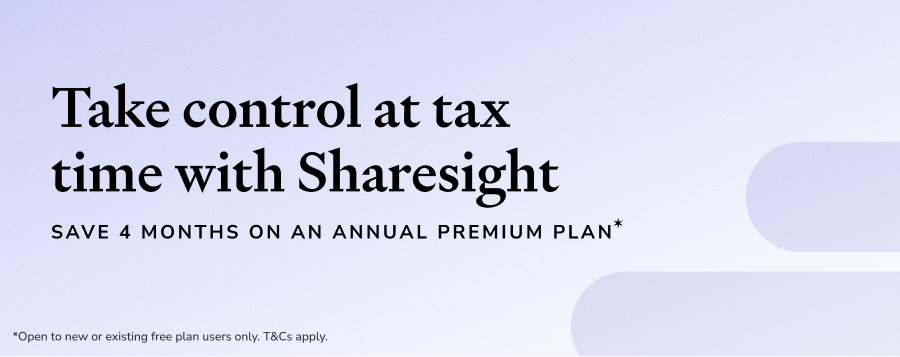- Equity Mates
- Posts
- 📈 Australia to ban card surcharges | Nvidia's good news keeps coming
📈 Australia to ban card surcharges | Nvidia's good news keeps coming
Here's what you need to know today
Enjoy this email? We’d love you to forward it to someone else who may enjoy it.
Forwarded this email? You can sign up here.

The RBA plans to allow payment networks to ban retailers adding card surcharges, beginning in July 2026
Here’s what you need to know today
Australia’s Reserve Bank has proposed a complete ban on card surcharges. The change, which is slated to take effect from July 2026 without needing to be passed by Parliament, will allow payment networks (Visa and Mastercard) to ban retailers charging fees on debit and credit transactions and will save consumers $1.2 billion a year. (ABC News)
Australian Prime Minister Anthony Albanese met Chinese President Xi Jinping, with Xi telling Albanese that after a frosty 2020-2022 period, “the China-Australia relationship rose from the setback and turned around, bringing tangible benefits to the Chinese and Australian people.” (AFR)
China’s GDP grew 5.2% over the past year as exports continued growing despite Trump’s trade war. Chinese officials pointed to a 6.4% expansion of manufacturing, particularly advanced manufacturing like 3D printing devices, electric vehicles and industrial robots. (BBC)
Donald Trump has warned the US would impose 100% tariffs on Russia if it does not agree to a peace deal with Ukraine within 50 days. At the same time Trump has agreed to send more Patriot air-defence missiles to Ukraine. (BBC)
Nvidia’s good news keeps on coming. After it became the world’s first $4 trillion company, and cofounder Jensen Huang passed Warren Buffett on the Forbes rich list, the company today announced that the US would lift the ban on selling its AI chips to China. This will not include Nvidia’s most advanced chips, but chips that are still in high demand from China’s tech companies. (NY Times)
As the Bitcoin price hits all-time highs this week, American lawmakers have dubbed this week ‘crypto week’. They are currently considering 3 bills: the GENIUS Act (that would regulate stablecoins), the CLARITY Act (which would regulate the broader industry), and the Anti-CBDC Surveillance State Act (which would ban the US Federal Reserve from issuing a digital currency). (Capital Brief)
Australian wealth platform Hub24 reported record inflows as funds under administration rose 30%. Shares were up 6% yesterday and are up almost 120% in the past 12 months. (Capital Brief)
What the…?
In 2000, the United States declared that it had eliminated measles from the country. That is why public health experts are distraught that America has just reported its highest number of measles infections in 33 years.
America’s Centre for Disease Control and Prevention (CDC) has announced that 1,288 cases were reported in the first seven months of 2025. Measles is one of the most infectious diseases known to humans, making the outbreak a concern. It is also extremely preventable, which is why vaccinations are so important. (NPR)
Investing is a lifelong journey
Here’s what you can learn today.
Quick questions with Luke Laretive
We put three quick questions to Luke Laretive, financial adviser and CEO of Seneca Financial Solutions.
What are your key rules of portfolio construction?
Define your objective (maximum return for a level of risk or minimise risk for a target return)
Define what a growth and defensive asset class is to you.
Define how much exposure you want to defensive asset classes to meet your objective.
Manage your liquidity requirements and plan for potential change.
With so many options for Australian shares - does it really matter if I choose IOZ, A200 or VAS?
No. I do not understand why so many people spend so much time worrying about which ETF to pick. It’s like worrying if there’s 10 or 11 billion grains of sand on the beach. If you want to actually make money, actually spend your time on something value-accretive.
What’s your one investment for the next 10 years?
I can almost guarantee I won’t own any stock for the next 10 years, except for the shares I own in Seneca (my business).
We find cheap stuff, then we wait for people to over-extrapolate the future and then we sell it to them for more than its worth. And then go and buy another under-appreciated thing. Repeat forever.
People want a silver bullet, a “Big Short” idea. Investing is “Moneyball” – buy stuff nobody else sees value in them and then beat them with it, in the aggregate.
Interested in speaking to Luke or another of our hand-picked financial advisers? Fill out the form on our website and we’ll put you in touch.
A message from Sharesight
Tax season doesn’t have to be stressful.
Sharesight tracks your portfolio automatically - dividends, CGT, foreign currency moves, brokerage, all of it so you’re not scrambling come the end of the financial year.
Stay tax-ready all year, and save 4 months on an annual premium plan.

